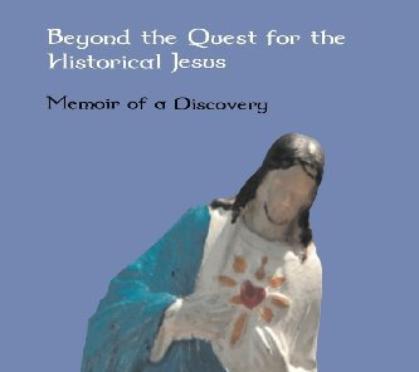 The earlier posts, “Act 1” covered Brodie’s Part One of Beyond the Quest. That covered the period of Brodie’s intellectual discoveries from his late teen years till June 1972 (when he was about 30 years of age). Much of the setting was Trinidad. Brodie titled that Part of his book, his first four chapters, “The First Revolution: Historical Investigations” and explained its theme:
The earlier posts, “Act 1” covered Brodie’s Part One of Beyond the Quest. That covered the period of Brodie’s intellectual discoveries from his late teen years till June 1972 (when he was about 30 years of age). Much of the setting was Trinidad. Brodie titled that Part of his book, his first four chapters, “The First Revolution: Historical Investigations” and explained its theme:
Becoming aware that biblical narratives are not necessarily reliable accounts of history.
The posts covering this section:
- The Making of a Mythicist, Act 1, Scene 1 (Thomas Brodie’s Odyssey)
- Making of a Mythicist, Act 1, Scene 2
We now come to Part Two.
Part II
The Second Revolution: Literary Sources
Becoming aware of where biblical writers found much of their material
Chapter 5
The setting is Europe, Normandy. 1972. Brodie is studying for exams in Rome.
While in Trinidad he had taught the Gospel so Matthew knew it well. Now he was studying Deuteronomy when the abductive moment flashed:
Now I was focused on Deuteronomy when I suddenly said ‘That is like Matthew, that is so like Matthew’ — something about the sense of community, the discourses, the blessings and curses, the mountain setting. (p. 31)
Other similarities suggested themselves in the following days:
- aspects of the Elijah-Elisha narrative “showed startling similarities to Luke-Acts”
- the book of Wisdom’s confrontation between Wisdom and the kings of the earth was in some ways suggestive of the meeting between Jesus and Pilate in the Gospel of John
While in Jerusalem, at the École Biblique, a center of biblical historical and archaeological studies, Brodie continued his study of the Septuagint (Greek Old Testament) with Matthew in mind. Only flimsy and tenuous connections with Matthew could be noticed, however, until he reached Deuteronomy 15.
Since beginning this series I have discovered James McGrath’s distortion of Brodie’s book so where appropriate I should make clear what Brodie really says. McGrath speaks of Brodie’s “extreme parellelomania”. It is one thing to question and debate specific claims that certain passages were borrowed from others, but quite another to dismiss any such argument out of hand because we don’t like its implications. I emphasize the passages that clearly escaped McGrath’s notice.
Connections with Matthew seemed few and flimsy. Then suddenly, in Deuteronomy 15, the search came to life. The repeated emphasis on remission resonated with Matthew’s emphasis on forgiveness (Mt. 18). Both use similar Greek terminology. Obviously such similarity proved nothing. But further comparison revealed more links. And the Deuteronomic word for debt, daneion, is unknown elsewhere in the Bible — except in Matthew 18. Gradually the pieces of the puzzle began to fall into place. Matthew 18 had used first-century materials, including Mark, but it had also absorbed Deuteronomy 15. (p. 32)
Here is a copy of Brodie’s table on this particular comparison from another work of his, The Birthing of the New Testament: Continue reading “Making of a Mythicist, Act 2, Scene 1 (Brodie’s Odyssey)”


